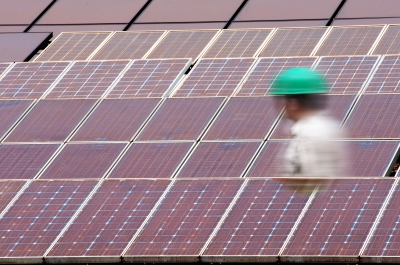The Office of Fair Trading has been running a “stamp out scams” campaign throughout February, warning consumers against being taken-in by rogue traders operating various forms of fraud. These include miracle health cures, get-rich-quick investment schemes, offers of international lottery wins, “free” holidays, and the ubiquitous Nigerian banking e-mails.
Sadly, many of the most prevalent scams are associated with the building industry. This website has investigated many suspect practices over the years, including the application of waterproof sealants to roofs and walls, the fitting of magnetic anti-scale devices to plumbing pipes, and the selling of ultrasonic pest repellents.
These are small fry, however, compared with some of the bigger corporate scams directed at householders, which the OFT and other government departments do not seem to be interested in. For example, early last year I investigated the many schemes that sell “insurance” for household mishaps that are very unlikely to ever happen, and that qualify, in some cases, for free repair by the authorities. The prime example of this was the HomeServe water supply pipe insurance, sold via the water companies, covering underground leaks that the companies themselves had undertaken to repair free of charge.
Then there are the tactics used by some leading energy companies to persuade customers that their existing central heating boilers are unrepairable, and need to be replaced by new ones – often at prices five or six times the cost of the actual equipment. And of course our old friends the damp-proofing and timber-treatment firms, who make their money by telling householders their homes are affected by invisible dampness and non-existent woodworm.
A more recent manifestation of the genre is solar water heating. I wrote last week about a reader who had been sold a solar panel system for over £6,000 which could not possibly pay for itself in her lifetime. I have since received a flood of letters and e-mails from readers across the UK who have paid out similar sums for solar water-heating systems, on the promise that they would save them money on their fuel bills.
Factors common to this kind of mis-selling are: unrealistic projections of savings; appealing to readers’ desires to be environmentally responsible; and the taking of large non-returnable deposits before any work has been started. These are all symptoms of the classic scam operation, and readers are advised to beware of firms that use any of them. Never pay money up front for any building service, and if in doubt, take independent advice from a Chartered Building Surveyor.





